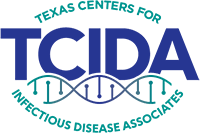The field of transplantation provides a second chance of life for many different medical conditions. In order to preserve the viability of the transplant, medications are required to alter the immune system and reduce the risk of rejecting the transplant. However, these medications may increase the risk of the patient developing opportunistic infections, which are conditions that do not typically cause infections in patients with a healthy immune system. The transplant infectious diseases physician acts as the “detective’ on the transplant team when there is a concern about an opportunistic infection, especially those that are difficult to diagnose. Sometimes the patient is given a medication to prevent a common or serious opportunistic infection. Accordingly, some opportunistic infections it may require significantly more work for the transplant specialist to diagnose. Whatever the situation is for the transplant patient, transplant infectious diseases is part of the daily routine at TCIDA. In the last decade, TCIDA physicians have treated several thousand transplant patients. Our office works closely with all of the transplant services to provide comprehensive and timely care to meet all of the needs of the transplant patient.
Q & A with TCIDA transplant infectious diseases specialists Dr. Bryan Youree and Dr. Cedric Spak
Question 1: What is transplant infectious diseases?
Transplant infectious diseases is the subspecialized care of transplant patients who have infectious complications usually due to opportunistic infections. Opportunistic infections are unique to or more commonly found in individuals who have received a solid organ or bone marrow transplant. These infections are often with organisms that typically do not cause disease in persons with a normal immune system. A transplant infectious diseases physician specialists must work closely with the rest of the transplant team to care for these patients.
Question 2: What makes transplant a specialized category of infectious diseases?
Transplant recipients take medications to prevent rejection of the organ or bone marrow they have received. These same medications block or suppress many of the immune pathways that are used to protect the body against pathogens to which we are commonly exposed. Because the medications typically cannot be discontinued, transplant infectious disease specialists must often find novel ways to treat infections (both common and rare) without interfering with the medications needed to protect the transplant. As such, the transplant infectious diseases physician must have a sophisticated knowledge of how transplant medications change the risk for having an opportunistic infection. Different transplant medications have different risks regarding infection.
Question 3: What specific knowledge would a transplant infectious diseases physician specialist have compared to a general clinical infectious diseases doctor?
Transplant infectious disease physicians often have an additional year of training focused specifically on transplant recipients and other individuals that are immunosuppressed.
Question 4: Is the transplant infectious diseases physician part of the transplant team?
Yes, the transplant infectious diseases doctor is a vital part of the transplant team. The transplant team includes the transplant surgeons along with the transplant medicine specialists: transplant cardiology, transplant pulmonology, transplant nephrology, transplant hepatology, and transplant hematology/BMT (bone marrow transplant). The transplant team also includes nurses, pharmacists and transplant coordinators. The transplant infectious diseases physician interacts with everyone on the transplant team on a regular basis to ensure that the patient is being treated globally with all aspects of their health in mind. It is truly a collaborative effort!
Question 5: When are you involved with transplant patients, before their transplant or after their transplant or both?
We manage patients before, during and after their transplant.
Question 6: Are you involved with decisions regarding the viability of transplant organs and/or the patients to receive those organs?
The care of the transplant patients starts before the transplant, sometimes DURING the transplant hospitalization, and it can also involve multiple points of care after the transplant, in the hospital and/or in the clinic. Situations occasionally arise in which the transplant infectious diseases physician is consulted by other transplant physicians about the risks of accepting organs in specific situations or about what extra prophylactic measures are required after transplantation.
Question 7: Do all transplant patients require assistance from a transplant infectious disease doctor?
Fortunately, not all transplant recipients require the services of a transplant infectious disease physician. In general, transplant patient care follows established protocols. When patients develop complications of the transplant, their course of illness typically requires much more than standard protocol care. For this reason, a transplant patient who has developed an opportunistic infection must be treated by a team of professionals because of the complexity of their illness. Some diseases are able to be predicted, while others are not. Similarly, some patients require limited involvement (maybe only 1-2 visits) with a transplant infectious disease specialist when they have an infection, while others may require a prolonged phase of care. Rest assured that if you are the patient, TCIDA is on your side and we are here for you.
Question 8: What’s new in transplant infectious diseases treatment?
In the last decade, there have been many changes in both transplant surgery techniques and pre-transplant supportive measures, which has increased the number of patients that our transplant team cares for.






